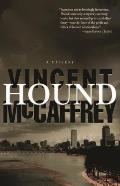
Because I write this from Indianapolis, where I have been attending this year's
Bouchercon (the world crime and mystery fiction convention), I will begin with a bit of argument I usually save for later in my general thesis concerning the death of the book. Sadly, most of the people attending looked like me — old and white... Okay, older, but still white. And though I know many younger readers of the mystery genre, they are the minority, and they are still white. Sitting in the audience and looking over the gray hair toward the podium where many fine authors were expounding on wonderful aspects of a genre which has been special to me since I was a teenager aspiring to be a writer myself, I could not help but be aware of the mortality of so many of these folks so devoted to their field they are willing to spend hundreds of dollars during a recession just to attend a gathering of fellow mystery lovers in this fine city with at least one great eating establishment (the
Rock Bottom Brewpub. I recommend the hickory burger and the house brown ale).
Understand, it is not their fault that they are either old, or older (I'm 62), or white. They were born that way. The problem is this: when they are gone, what then? When a new generation is raised on libraries without books, and instant news gratification, and text which is so fungible it leaks before your eyes, what then? And all this, when many cultures, not only elsewhere on this small Earth, but right here in Indianapolis, have not yet even established the traditions of respect for the printed word which propelled Western culture for five centuries.
And this feeds into my greater worry — the cause which made me choose to write this series of mysteries in the first place. The book may not yet be dead, but it is mortally wounded. I have been preaching this line to deaf ears for years. The new technologies, others say, will not replace the book, but will only share the space, and enlarge it for all. Sure. Like the automobile did for the horse-drawn carriage. No. Not like that. More like the Cro Magnon replaced the Neanderthal.
My thesis is that any such comparison does not apply. Before Gutenberg's book, only a small elite could read — was permitted to read — and text was so expensive only the wealthy could afford the pleasure. A scare-house Halloween mirror version of this is what I fear most. After the book is gone, everyone will be able to read, but what they read and how they read will be determined by a few. A faceless few. An anonymous, bureaucratic few.
I chose to write a mystery not to write a polemic about the death of the book (all part of the death of the bookshop, and the newspaper, etc.), but to make a point of the mortality of this love I have for something mankind has done right amidst all the things we have gotten wrong. The book is a holy thing to me, and reading a pleasure and a gift I wish on everyone.
I have been a publisher and an editor of books and magazines. I once participated in the actual printing of a small school journal from movable type on a letterpress. I have designed pages and pasted them up. I have developed the advertising and marketing of publications. I have been a book rep traveling from city to city. And I have been a bookseller — this is the way I have earned my living for over thirty years. Now, I am a writer of a book, with others written and waiting their turns.
Not coincidentally, I chose as protagonist a 'book hound' whose devotion to books has afforded him a refuge and a living, whose comfort is shattered by the murder of woman — a friend and a former lover, but someone he is not sure he loved. This doubt, and the fact that he himself is both a suspect and a witness, compels him to find the cause of her death. Once shaken, he is awakened and can no longer sleep. Not to make too much of the metaphor, this is in kind with the death of the book itself. We take it for granted and assume that its blessings can be moved to a digital being. It won't be. This wonderful device on which I write now and the magic software that makes it possible, is more fragile than any but a few are willing to recognize.
I don't fear the Kindle or the Sony Reader, or the iPod, or any new device. They are wonderful in their own right. But we cannot let them replace the book.
There are many other worries attached to this, of course. I have been talking about this for long enough to make a few books out of it, at the very least. I will touch on a few over the next few days as I recover from my first-ever convention.